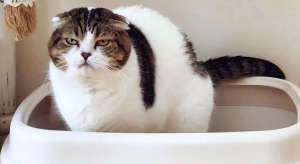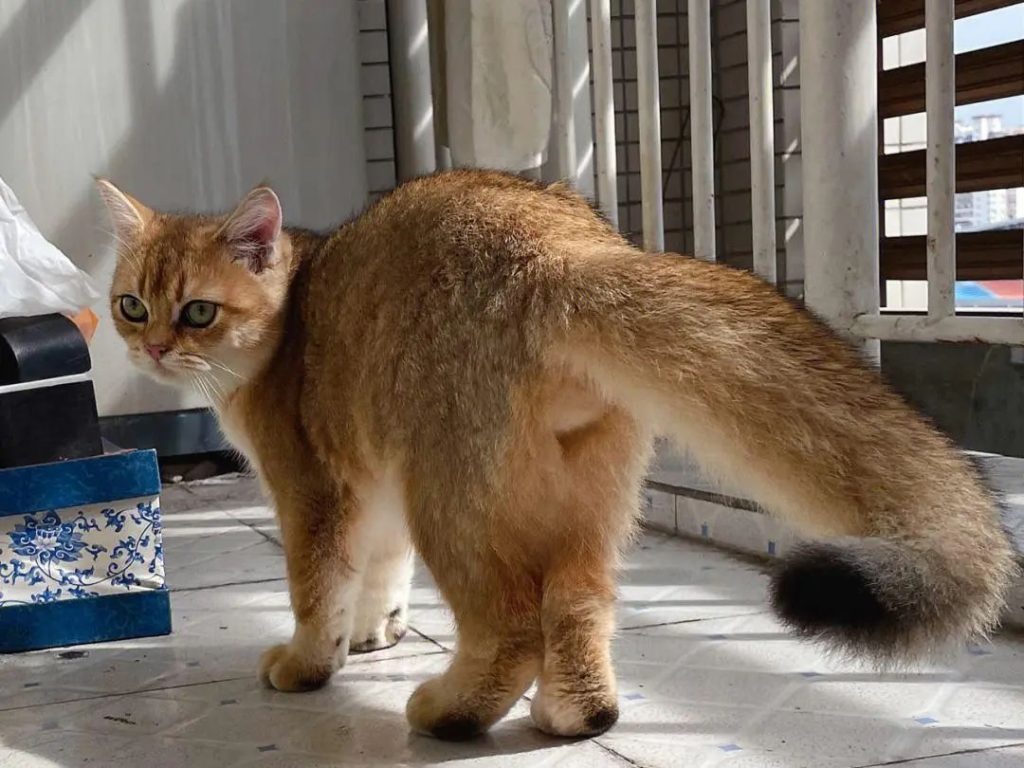What do cat owners fear the most?Not the shedding, not the knocked-over vases—but quietly counting on their fingers: “How many more years will my kitty stay with me?”Don’t worry! Those feline “centenarians” living 20+ years have already been showing the secrets to longevity in their daily habits.Today, let’s uncover the 7 key traits of long-lived cats.If your cat matches 3 or more, congratulations—it’s a true “winner in the cat life”!
-
Body Shape Management: Fit, Not Fat, Strutting with Confidence
Long-lived cats often have a physique comparable to supermodels—muscular yet sleek, ribs you can feel but not see, with a slight belly wobble when trotting (that’s a primordial pouch, not fat!).Obese cats aged 8–12 have a 2.8 times higher mortality risk than cats at a healthy weight. Every extra kilogram may shorten lifespan by half a year.
-
Litter Box Etiquette: Digestive System as Solid as a Dog’s
The litter box is a cat’s health barometer!Long-lived cats produce deep-brown, well-formed stools that don’t stick to the box, and usually have more than two urinations per day (about the size of a ping-pong ball), burying their waste properly.Soft stools, blood streaks, or more than five visits a day? Check for parasites or gastroenteritis.Urine output like a quail egg? Watch out for urinary problems—kidney disease is common in older cats, often first showing as reduced urination.Tips: provide a flowing water fountain, mix water into wet food to encourage hydration. Switch foods gradually over 7 days, and have litter boxes = number of cats + 1 to prevent “toilet anxiety.”
-
Sleeping Like a Pro: Deep Sleep & High Alertness
Long-lived cats average 16 hours of sleep daily.During deep sleep, they relax fully, expose their bellies, and even snore. Growth hormones are secreted, repairing cellular damage—good sleep equals a long life!If your cat curls up constantly or has twitching eyelids, it may be anxious or in pain.Tips: provide heated mats in winter to prevent cold-induced arthritis. Play for 20 minutes before bed to burn off “destructive energy,” ensuring a restful sleep.
-
Appetite Management: Eager Eaters with Discerning Taste
Nutrition balance is key for long-lived cats—they have strong appetites, chew carefully, don’t overeat, and are curious about new food.A sudden loss of interest in favorite treats? Check dental or kidney health!Feed high-quality, grain-free dry food: first three ingredients must be meat, high protein (>35%), moderate fat (15–20%), low carbs (<10%). Supplement twice a week with fish (Omega-3) or boiled chicken breast, and add eggshell powder for calcium.

-
Exercise Management: Daily 10-Minute Sprints
Daily activity includes chasing laser dots, exploring boxes, and nighttime zoomies—exercise boosts immunity.Young cats build muscle, seniors stretch to protect joints. Cats with 20 minutes of activity daily have lower risks of dementia and arthritis.Tips: use laser pointers or cat wands to get them moving. If your cat ignores you, try sticking freeze-dried treats on the cat tree—instant Olympic spirit unleashed!
-
Emotional Stability: Calm Through Any Storm
Think aloofness is a cat’s nature? Wrong! Long-lived cats are often “social bandits”: rubbing legs, exposing bellies, seeking cuddles.Even during thunderstorms or moving days, they stay calm, grooming themselves.Stable emotions reduce stress-related illnesses like cystitis or FIP. Research shows adaptable, confident cats live on average 2.3 years longer than timid ones.Tip: for shy cats, provide a “safe room” with a covered bed and old clothes to reduce anxiety.
-
Genetic Luck: Some Cats Are Born to Thrive
Siamese, Birman, Burmese: average lifespan 14.4 years, true “feline longevity legends.”Chinese domestic cats: hybrid vigor and strong survival instincts often live to 15+.Sphynx cats: despite their alien appearance, record-holder lived to 34!The secret to longevity: a stable environment and emotional bond. Watching birds together is far more valuable than feeding expensive supplements.
Does your cat have these longevity traits? How many did it match?Share your stories and photos in the comments—we’d love to swap tips and experiences on raising happy, healthy cats!





